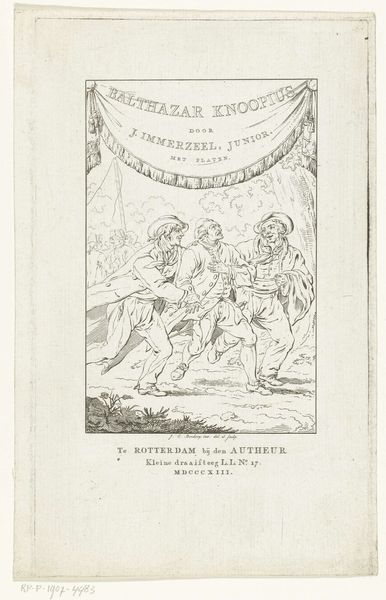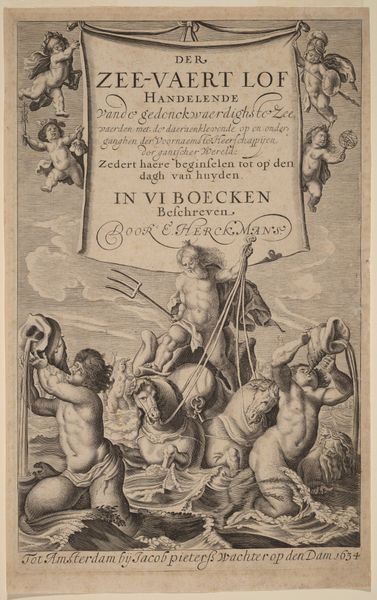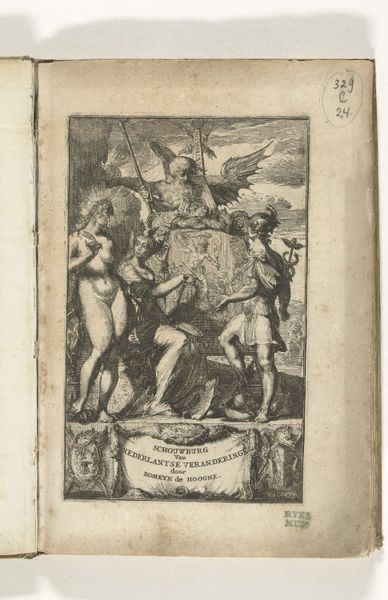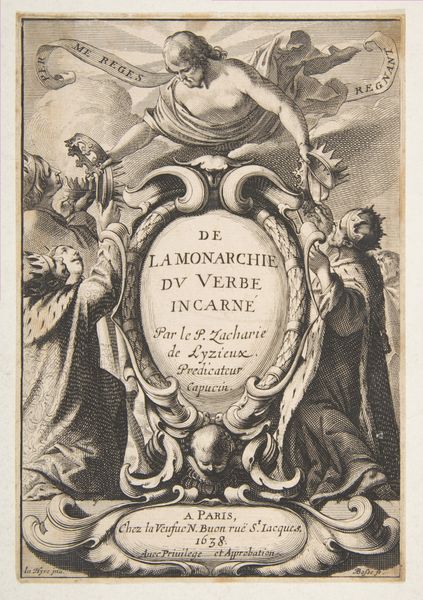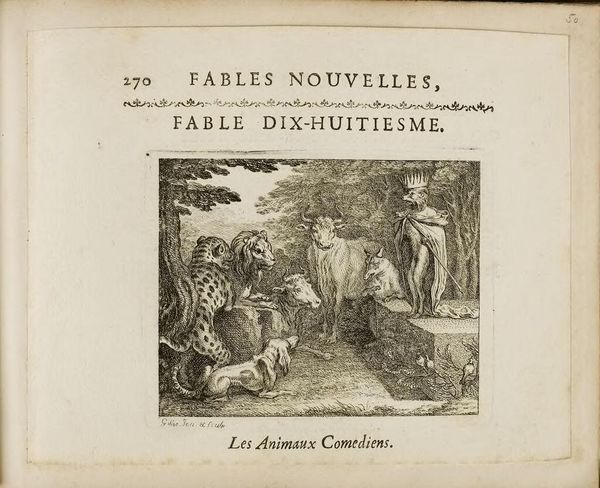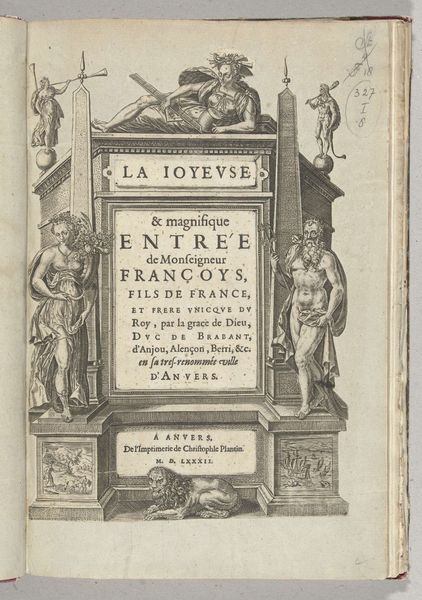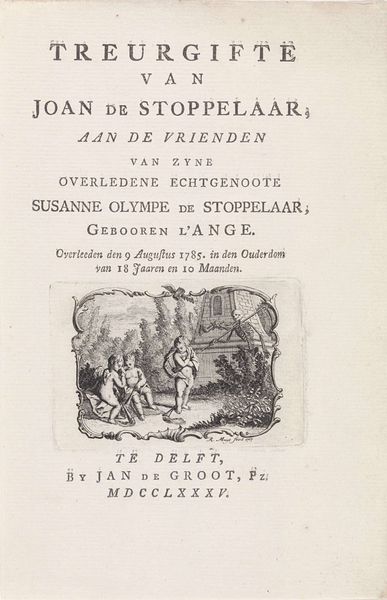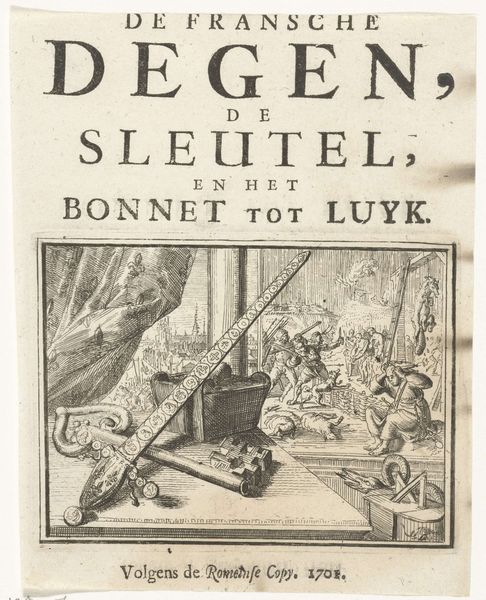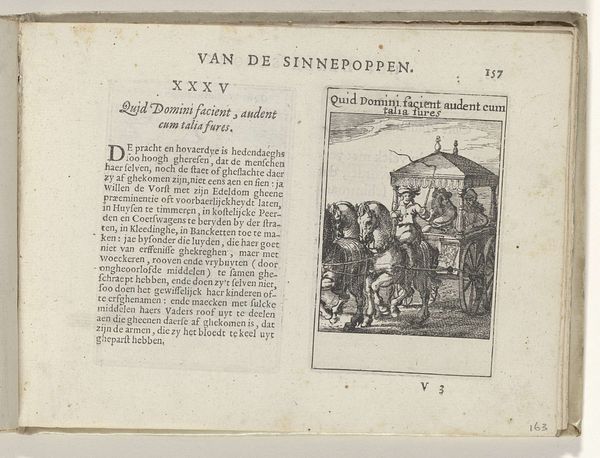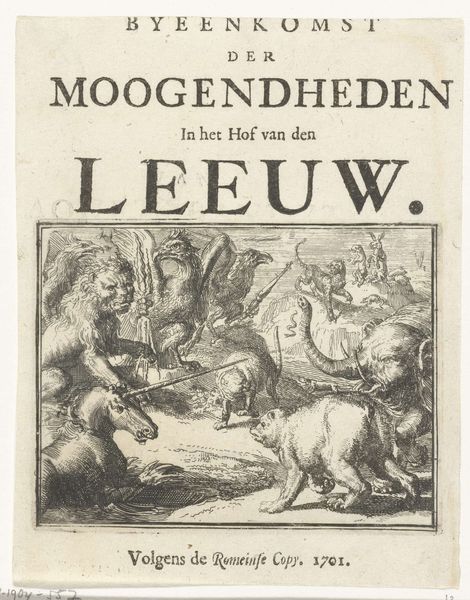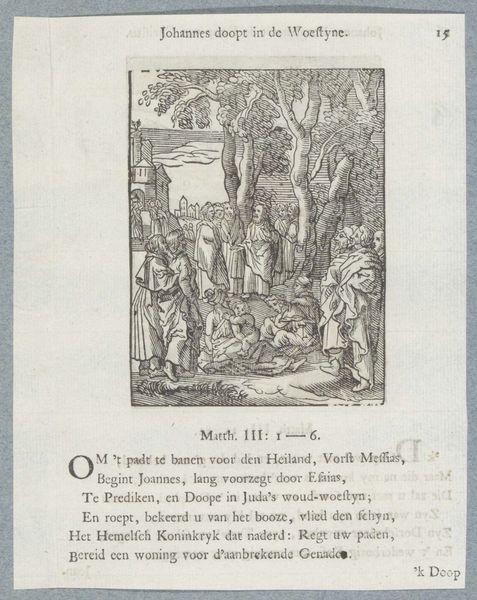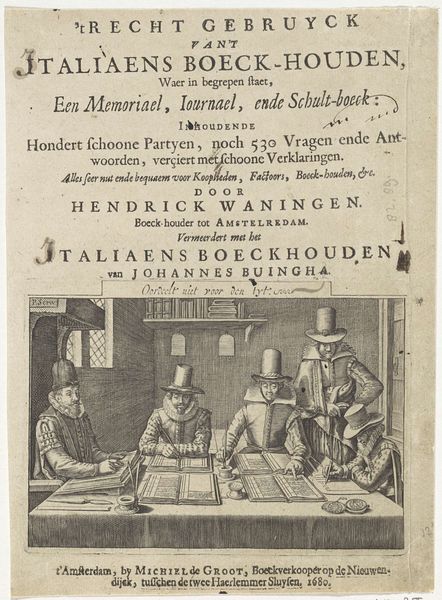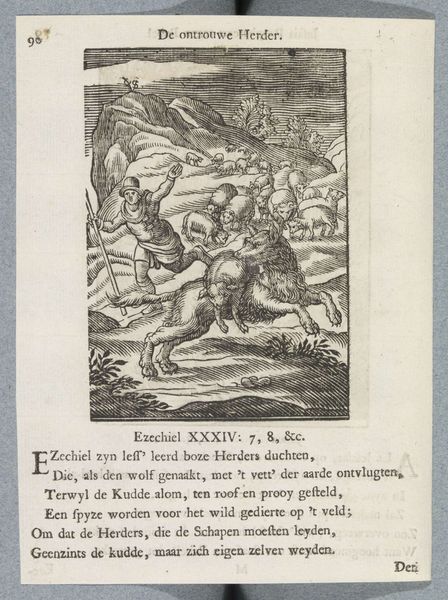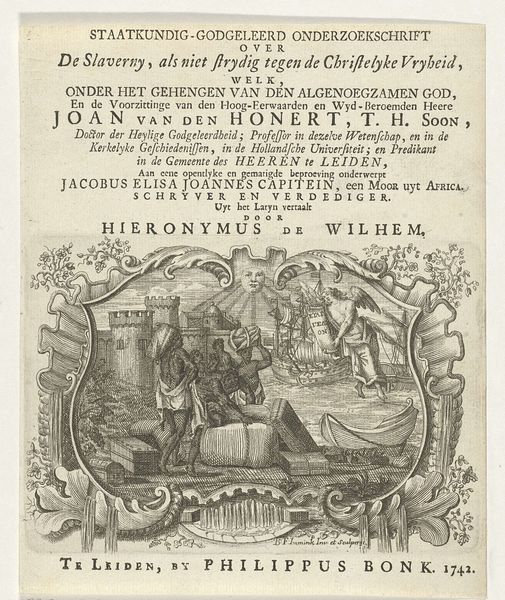
Titelblad voor het pamflet: Het Heydinnetje, de Miquelet, en Mooyfraaykiek, In de Pirenëen, 1702 1702
0:00
0:00
romeyndehooghe
Rijksmuseum
print, etching, engraving
#
narrative-art
#
baroque
# print
#
etching
#
figuration
#
line
#
history-painting
#
engraving
Dimensions: height 175 mm, width 140 mm
Copyright: Rijks Museum: Open Domain
This is a 1702 etching by Romeyn de Hooghe, a title page for a pamphlet. It depicts three figures in the Pyrenees. One is a 'Miquelet', a soldier, flanked by a 'Heydinnetje' – a pagan woman – and a 'Mooyfraaykiek', the meaning of which is now obscure. This image gains meaning when we consider its socio-political context. The early 1700s were a time of religious and political upheaval in Europe. Pamphlets such as this were a key means of spreading propaganda. De Hooghe was a master of political imagery, and his prints often satirized political opponents. The exotic setting and characters here likely served to create a sense of otherness and perhaps to comment on the political situation in the Netherlands. The "Romeinse Copy" mentioned suggests a connection to Roman Catholic propaganda, which would have been a controversial subject in the Protestant Netherlands. To fully understand this work, we would need to research the specific political events of 1702. Consulting historical pamphlets and political writings of the period could shed light on the figures represented here.
Comments
No comments
Be the first to comment and join the conversation on the ultimate creative platform.
